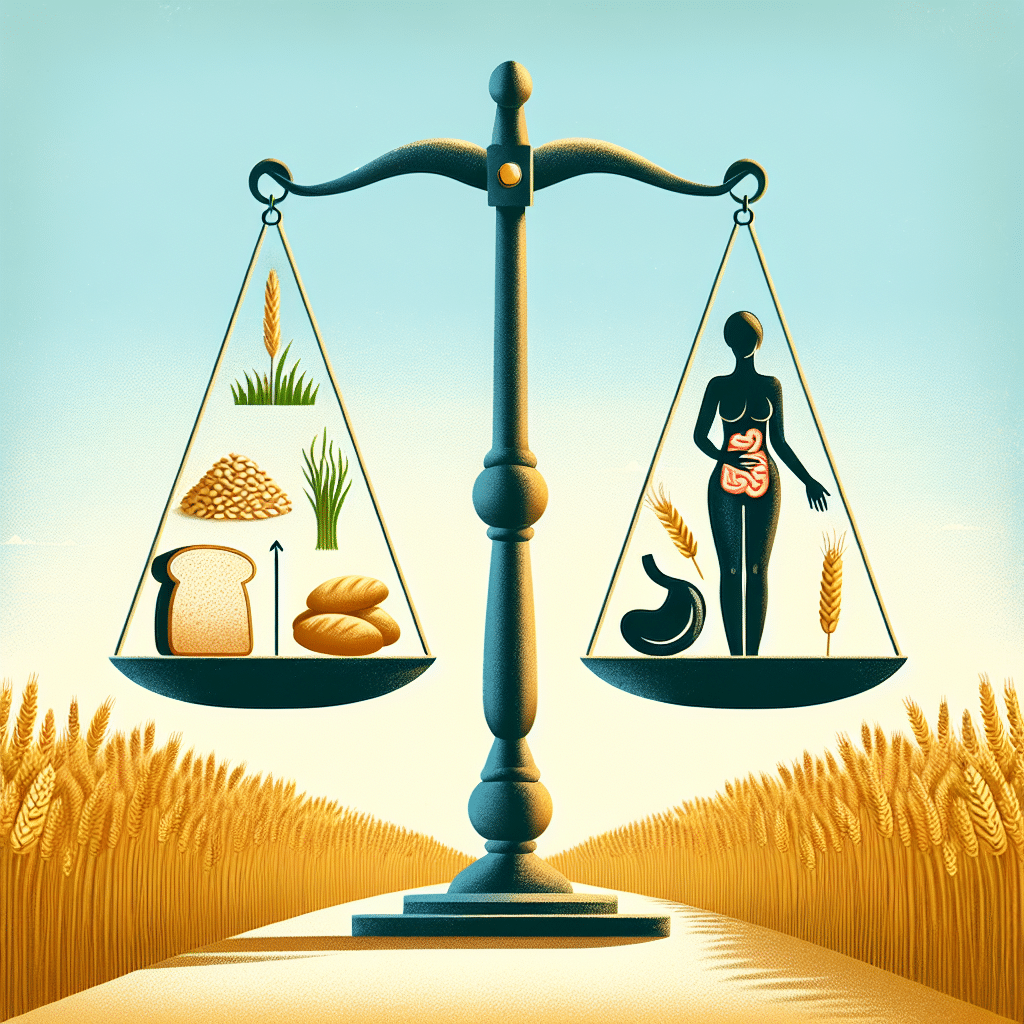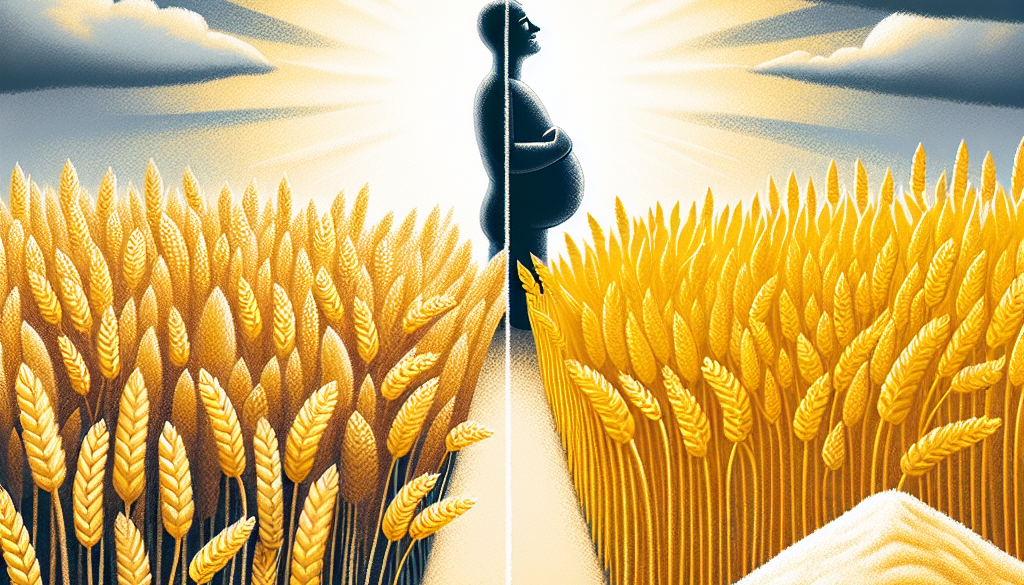Is Wheat Good Or Bad For You?
-
Table of Contents
- Wheat Consumption: Evaluating the Health Implications
- The Nutritional Profile of Wheat
- Health Benefits of Wheat
- Potential Downsides of Wheat Consumption
- Wheat Allergies and Sensitivities
- Case Studies and Research
- Wheat in a Balanced Diet
- Conclusion: Weighing the Pros and Cons
- Discover ETprotein’s High-Quality Protein Products
Wheat Consumption: Evaluating the Health Implications

Wheat is one of the most widely consumed grains globally, serving as a staple food for a significant portion of the world’s population. It is the base ingredient for many foods, including bread, pasta, cereal, and pastries. However, the health effects of wheat consumption have become a topic of intense debate among nutritionists, health experts, and consumers alike. This article aims to dissect the arguments for and against wheat consumption, providing a comprehensive overview of its health implications.
The Nutritional Profile of Wheat
Understanding the nutritional value of wheat is crucial in assessing its role in a balanced diet. Wheat is a rich source of various nutrients, including:
- Carbohydrates: Wheat is primarily composed of carbs, which are the body’s main energy source.
- Fiber: Whole wheat is particularly high in fiber, which aids in digestion and has been linked to numerous health benefits.
- Proteins: It contains a moderate amount of protein, which is essential for body repair and growth.
- Vitamins and Minerals: Wheat provides essential nutrients such as B vitamins, iron, magnesium, phosphorus, manganese, and selenium.
Whole wheat, in particular, is considered more nutritious than refined wheat because it contains the entire grain, including the bran, germ, and endosperm. Refined wheat products, on the other hand, have the bran and germ removed during processing, which significantly reduces their nutritional content.
Health Benefits of Wheat
Whole wheat and its products have been associated with several health benefits:
- Improved Digestive Health: The high fiber content in whole wheat promotes regular bowel movements and may help prevent digestive disorders such as constipation, diverticulitis, and hemorrhoids.
- Reduced Risk of Chronic Diseases: Studies have shown that whole-grain consumption can lower the risk of heart disease, type 2 diabetes, and certain forms of cancer.
- Weight Management: The fiber in whole wheat can also help with weight management by providing a feeling of fullness and reducing overall calorie intake.
Potential Downsides of Wheat Consumption
Despite its benefits, wheat consumption has been criticized for several reasons:
- Gluten Content: Wheat contains gluten, a protein that can cause health issues for individuals with celiac disease or gluten sensitivity. For these people, consuming wheat can lead to intestinal damage and other serious health problems.
- Antinutrients: Wheat contains phytic acid, which can bind to minerals and reduce their absorption. However, this is generally not a concern for those with a well-balanced diet.
- Glycemic Index: Some wheat products, especially those made from refined flour, have a high glycemic index (GI), which can lead to rapid spikes in blood sugar levels.
Wheat Allergies and Sensitivities
Wheat allergies are another concern, as they can cause a range of symptoms from mild (rashes, hives) to severe (anaphylaxis). Non-celiac gluten sensitivity (NCGS) is also increasingly recognized, with symptoms including gastrointestinal discomfort, fatigue, and headaches, despite the absence of celiac disease.
Case Studies and Research
Several studies have explored the impact of wheat on health. For instance, a large cohort study published in the American Journal of Clinical Nutrition found that higher whole grain intake was associated with a lower risk of cardiovascular disease. Conversely, a study in the Journal of Nutritional Biochemistry suggested that modern wheat breeding practices might have altered the nutritional quality of wheat, potentially contributing to increased inflammation and insulin resistance.
Wheat in a Balanced Diet
When considering whether wheat is good or bad for you, it’s essential to look at the context of your overall diet. For most people, whole wheat can be part of a healthy diet when consumed in moderation and as part of a varied diet rich in fruits, vegetables, lean proteins, and healthy fats. However, for those with celiac disease, gluten sensitivity, or wheat allergies, wheat should be avoided.
Conclusion: Weighing the Pros and Cons
In conclusion, wheat can be both good and bad for you, depending on individual health conditions and dietary choices. Whole wheat is nutritious and can contribute to a healthy diet, but it’s not suitable for everyone. It’s important to listen to your body and consult with healthcare professionals if you suspect any issues with wheat consumption.
Discover ETprotein’s High-Quality Protein Products
If you’re looking for alternative protein sources, especially if you’re avoiding wheat due to allergies or sensitivities, ETprotein offers a range of organic bulk vegan proteins that could be an excellent addition to your diet. Their products are non-GMO, allergen-free, and come with a high purity level, making them a great choice for anyone looking to diversify their protein intake.
About ETprotein:
ETprotein, a reputable protein and L-(+)-Ergothioneine (EGT) Chinese factory manufacturer and supplier, is renowned for producing, stocking, exporting, and delivering the highest quality organic bulk vegan proteins and L-(+)-Ergothioneine. They include Organic rice protein, clear rice protein, pea protein, clear pea protein, watermelon seed protein, pumpkin seed protein, sunflower seed protein, mung bean protein, peanut protein, and L-(+)-Ergothioneine EGT Pharmaceutical grade, L-(+)-Ergothioneine EGT food grade, L-(+)-Ergothioneine EGT cosmetic grade, L-(+)-Ergothioneine EGT reference grade and L-(+)-Ergothioneine EGT standard. Their offerings, characterized by a neutral taste, non-GMO, allergen-free attributes, with L-(+)-Ergothioneine purity over 98%, 99%, cater to a diverse range of industries. They serve nutraceutical, pharmaceutical, cosmeceutical, veterinary, as well as food and beverage finished product distributors, traders, and manufacturers across Europe, USA, Canada, Australia, Thailand, Japan, Korea, Brazil, and Chile, among others.
ETprotein specialization includes exporting and delivering tailor-made protein powder and finished nutritional supplements. Their extensive product range covers sectors like Food and Beverage, Sports Nutrition, Weight Management, Dietary Supplements, Health and Wellness Products, and Infant Formula, ensuring comprehensive solutions to meet all your protein needs.
As a trusted company by leading global food and beverage brands and Fortune 500 companies, ETprotein reinforces China’s reputation in the global arena. For more information or to sample their products, please contact them and email sales(at)ETprotein.com today.












